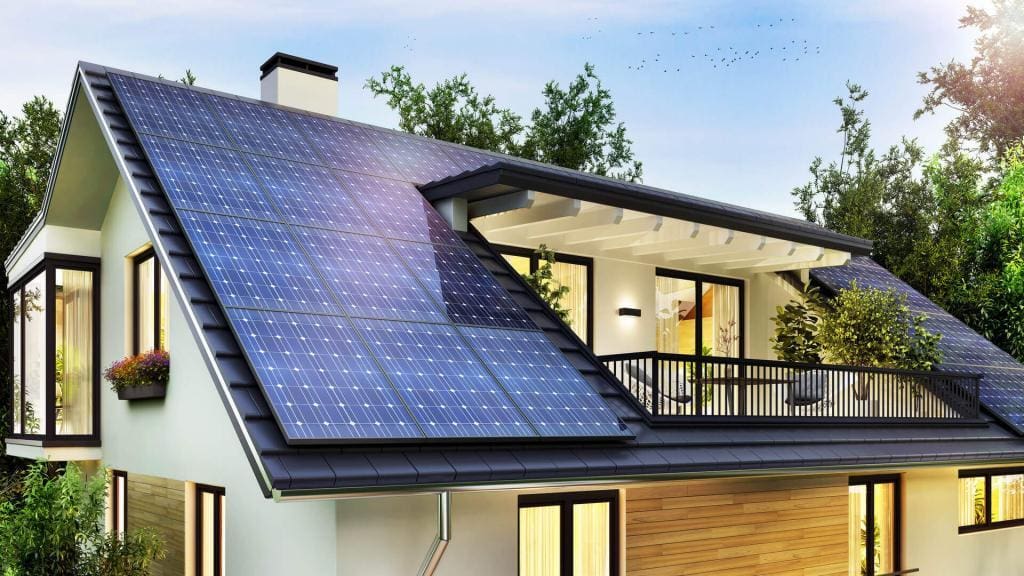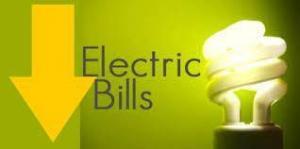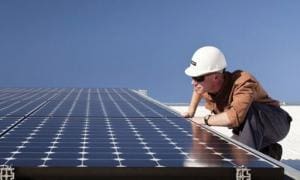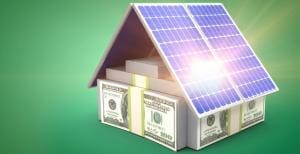The growth of solar panels being installed on both residential and commercial levels has accelerated in the last 10 years.
There are many advantages of transitioning from relying on the grid to solar energy as your main energy source. It really depends on the angle you’re coming from. Whether it’s from an environmental perspective or simply because you want to save money on your power bills, going solar makes sense.
Take a look at 5 of the biggest benefits of going solar.
1. Good for the environment
Because solar energy is created from the sun it’s therefore a renewable energy source. By having solar panels on your roof, they help you contribute towards reducing carbon emissions that cause global warming.
As no greenhouse gas emissions are generated by this form of clean energy there aren’t any adverse environmental effects that are created as a by-product.
By moving towards solar energy, you’ll be part of a movement in relying less on fossil fuels in generating electricity.
Most electricity today is still generated by the burning of fossil fuels. It’s estimated that 10 billion tonnes of CO2 is emitted into the atmosphere every year. In addition other emissions such as sulphur and nitrogen oxides contribute to smog and acid rain.
2. Reduce power bills
By connecting to a solar system, you can reduce the amount of power you need to buy off your retailer. This is the primary benefit of installing solar power as you can usually reduce the amount of electricity by up to 50% or up to 100% with a battery.
You can also become a net exporter of excess electricity by participating in what is known as a ‘feed-in tariff’. This is essentially a payment you receive from the grid in return for any surplus clean energy produced from your solar panels.
In the early days of solar in Australia, there used to be very high feed in tariffs that someone would receive as an incentive to invest in an installation.
Most of these programs were finished by 2012 and we have seen feed in tariffs falling over the last few years. This means that it’s no longer the main reason to invest in a solar system.
As the cost of electricity is still high, going solar still offers a great return on investment. The typical payback period is in the range of 3 – 5 years – much better than leaving your money in the bank!. To calculate your payback period we’ve created this payback calculator.
Compare quotes from up to 7 local installers now.
3. Low maintenance costs
Generally speaking, solar panel systems don’t require much maintenance.
Most solar panels have a warranty period of between 10 – 25 years and good brands are designed to withstand all kinds of weather conditions.
As solar panels don’t have any moving parts, there is little wear and tear. The inverter is usually the only part that requires to be changed after a period of 10-15 years, however these are only a small proportion of the total cost of the system (usually less than 20%). Inverters usually have a 10 year warranty but some models can be extended up to 20 years.
The warranties cover manufacturing defects which require a qualified electrician to identify and report with the product manufacturer.
We do, however, recommend that you do a full electrical inspection every few years for residential installations. For commercial systems we recommend scheduling a yearly inspection. These visual inspections will proactively identify any issues such as water ingress into cabling or components.
There’s a debate about whether or not you need to clean your solar panels as in many cases the normal rainfall is sufficient to clean them. What we can say is that due to improvements in solar cell technology, they don’t lose their efficiency as much due to shading or dirt build up. When you get a qualified electrician to inspect your solar panels, they’ll inform you if it’s advisable to clean them.
We go a lot more in-depth about solar panel maintenance here
4. Increase the value of your property
A solar system may add market value to your property. According to research undertaken by realestate.com.au which found that 85% of participants in a survey believed that solar panels add value to a home.
Another survey by Origin Energy found that 77% of Australians think a house with solar is more valuable than one that relied on traditional energy sources. The survey also found that 57% of homeowners would pay up to $10,000 more for a solar powered home.
It has been estimated that the increased value from a 5kw installation to be $29,000.
Compare quotes from up to 7 local installers now.
5. The Government helps to make it affordable
The Australian Government provides financial incentives to residential homeowners to invest in a solar system by providing what is known as Small-scale Technology Certificates (STCs)
STCs are part of the Australian Government’s Renewable Energy Target to reduce emissions of greenhouse gases in the electricity sector and encourage electricity generation from sustainable and renewable sources.
STCs are eligible for all solar systems under 100 kW, which would cover most residential customers. You also have to get it installed by a Clean Energy Council member who uses solar panels and inverters that are approved by this body.
An STC can be thought of as a discount that’s applied on the cost of the solar system.
The size of the STC rebate you will receive is determined by the amount of renewable energy you will generate.
Without going into the nuts and bolts of how the STC is calculated, here’s a practical example below:
| 6.6kW solar system average cost | $9,500 |
| STC rebate | $3,465 |
| Cost to you | $6,035 |
Conclusion
There are a wide variety of motivations for people adopting solar energy as a primary source of electricity for their household or commercial building.
Whether your motivations are to save money on power bills or you want to join the clean energy revolution, going solar makes sense.
If you’re confident that installing solar panels is the right decision for you, we’re here to help.
Simply enter your post code below and make an apples-to-apples comparison of solar installers based on your criteria.
Compare quotes from up to 7 pre-vetted installers in your area now.
Since 2008 our knowledge and sophisticated software has allowed over 160,000 Australian households and businesses to make a well-informed choice on their solar & battery installer.
- Solar Panel Costs: Solar Choice Price Index | April 2025 - 1 April, 2025
- Solar Panels For Homes – All You Need to Know About Solar Systems - 18 March, 2025
- Best NSW Solar Feed-In Tariffs - 17 March, 2025





